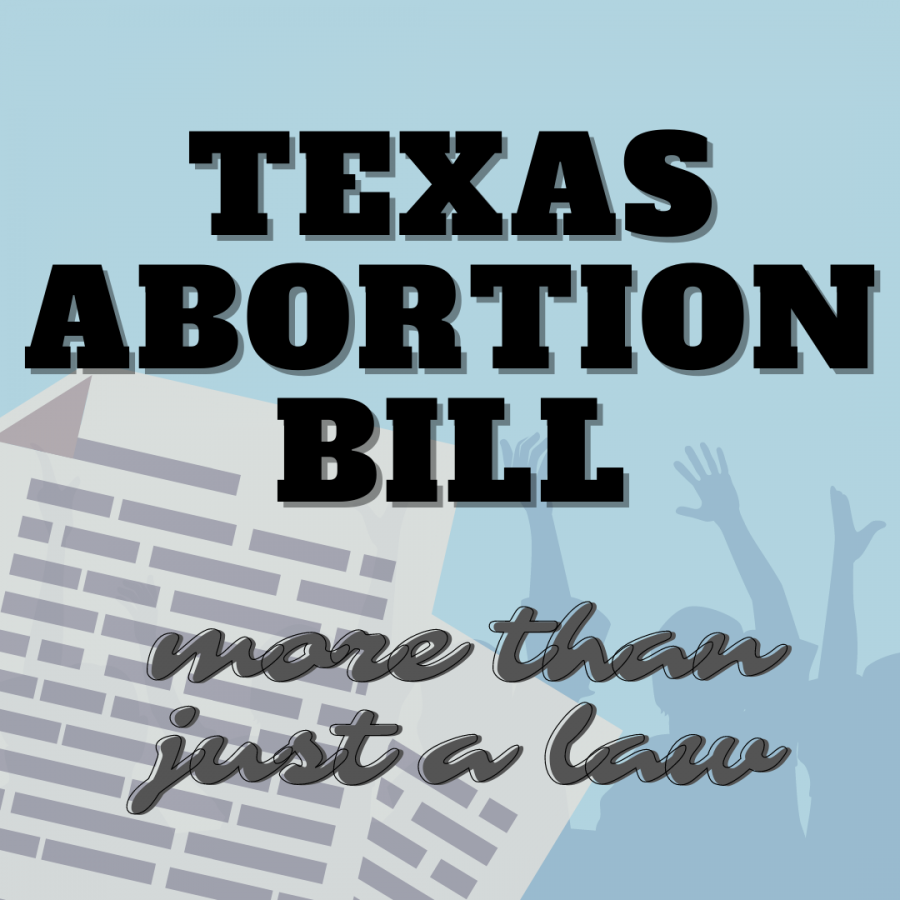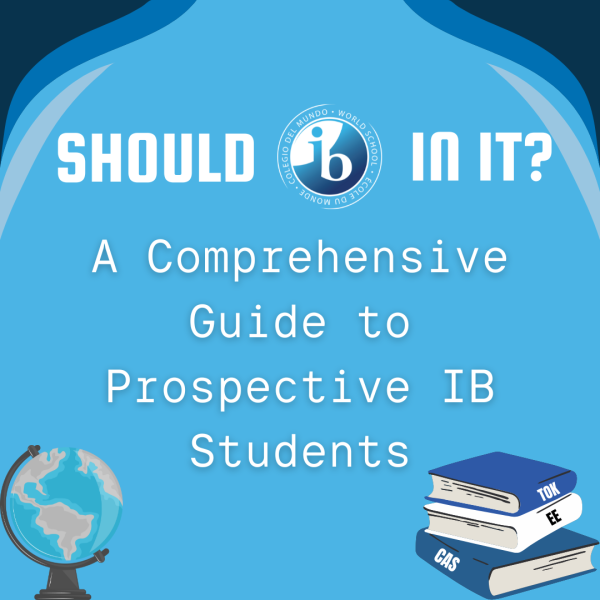The Texas Abortion Bill: More Than Just a Law
Whether you’ve briefly glanced at the news in the past few weeks or are an avid political activist, you’ve probably heard information about the new abortion law passed in Texas. As a high school student in North Carolina, this news may not seem too ground-breaking for you, yet this one law has the potential to challenge important legal precedents that could affect the futures of women across the nation.
As of September 1st, abortions in Texas are banned after the detection of a fetal heartbeat, which can occur as early as 6-weeks into the pregnancy. The law has met public outrage as it is the most restrictive abortion law in the United States and comes in a state with no requirements for sexual education in public schools. Pro-choice activists have voiced their outrage at the early restriction as most women are unaware that they are pregnant before the 6-week mark.
Amidst debate on the ethics of the law, Democrats have raised the issue of constitutionality due to the landmark Supreme Court case, Roe v. Wade. Ruled in 1973, Roe v. Wade states that it is a woman’s right to have a legal and safe abortion. Pro-life groups took the law to the Supreme Court for it to be overturned, but instead were faced with a 5-4 vote against the overturn. So if pro-choice activists and Democrats are claiming that the Texas law infringes on Roe v. Wade, then why isn’t it overturned? Well, as with most things in American politics, it’s just not that simple. The answer lies within the strategic wording and regulations of the law that allows it to surpass Roe v. Wade and be deemed constitutional.
Roe v. Wade does not allow states to infringe on a woman’s constitutional right to an abortion. This may seem straightforward, yet Texas Republicans have found a way to maneuver through this technicality. The Texas abortion law does not allow state law officials to enforce the law; instead, the burden of regulation lies with the citizens. Texans have the power to sue anyone who “aids or abets” a woman getting an abortion after a fetal heartbeat is detected. It is technicalities like this, among various others, that allow the law to be legal. Theoretically, if no one decides to sue then the law would not be enforced, but in a state like Texas where a major portion of the population is conservative, this is not a risk abortion clinics and women are willing to take. Yet for many Democrats, the fight is not over. Earlier this month, White House Press Secretary Jen Psaki commented that Democrats in the House of Representatives are working to solidify the protections provided by Roe v. Wade, legislation that Biden would be “eager to sign into law” according to Psaki. Democrats in the House seem to have followed through on this promise with the passing of The Women’s Health Protection Act last week. The bill aims to protect the abortion rights of women throughout the US, yet according to NPR, it is unlikely to pass in the Senate and can be deemed “largely symbolic”.
Our school’s own community has already seen the rise of pro-life support on the streets of Raleigh and even next to Enloe’s campus. In May 2021, self-proclaimed Christian pro-life protestors approached students near campus leaving many feeling “uncomfortable” with the situation. According to Damarion King, a student on campus during the protests, the protestors were “screaming in [student’s] faces” and holding up signs with “graphic images”. The protestors were looking to convince the students of their pro-life views, claiming that students, “are the next generation and should do something about it”, according to Damarion’s account of his interview with the protestors. Footage of Damarion King’s interview of the protestors can be found on his Instagram IGTV @damarionk12.
If the protestors outside of Enloe were right about one thing, it was that the Enloe students are the next generation to be affected by the pro-life/pro-choice debate. Although these abortion restrictions remain isolated to Texas, the legal precedent and response from legislatures will set the stage for America’s new take on abortion rights. If the US Supreme Court continues to deny overturning the Texas law and Congress is unable to pass legislation protecting abortion rights, other states may seize the opportunity to pass abortion legislation similar to that of Texas. And unfortunately for pro-choice advocates and women throughout the nation, this hypothetical situation is already here. Florida Representative Webster Barnaby has already advanced on the opportunity by introducing a bill to the Florida legislature that is “modeled after Texas’ new law”. As we wait to see the outcome of this bill, it is more than likely that other red states will follow Florida’s lead. The boundaries of Roe v. Wade are already bending with Texas’s abortion law. If more states join the force, the boundaries will continue to bend — it’s only a matter of time before they break.
If you are interested in supporting women in Texas seeking abortions or voicing your opinion to your representative, here are some resources:
- Find Your Representative
- Donate to Planned Parenthood of Greater Texas, Inc.
- 20 Organizations Fighting the Texas Abortion Ban
Sources:
- https://www.usatoday.com/story/news/politics/2021/09/08/greg-abbott-says-texas-eliminate-rape-defends-abortion-law/5770204001/
- https://www.nytimes.com/2021/09/01/health/texas-abortion-law-facts.html
- https://www.plannedparenthood.org/planned-parenthood-center-for-choice/texas-abortion-laws
- https://www.npr.org/2021/09/08/1035045952/lyft-uber-will-pay-drivers-legal-fees-if-theyre-sued-under-texas-abortion-law
- https://legiscan.com/TX/text/SB8/id/2395961
- https://www.texastribune.org/2021/05/18/texas-heartbeat-bill-abortions-law/
- https://www.cnn.com/2021/09/03/tech/match-bumble-texas-abortion-law/index.html
- https://www.bostonglobe.com/2021/09/07/nation/texas-is-already-taking-heat-companies-over-its-strict-abortion-law-it-could-soon-be-facing-economic-backlash-city-too/
- https://time.com/6095100/texas-abortion-law-politics/
- https://www.rollcall.com/2021/09/02/democrats-plot-response-to-texas-anti-abortion-law/
- https://texasrighttolife.com/category/news/
- https://www.nytimes.com/2020/11/20/us/texas-sex-education.html
- https://www.texastribune.org/2021/09/10/texas-abortion-law-ban-enforcement/
Your donation will support the student journalists of Enloe Magnet High School, allowing us to cover our annual website costs. We are extremely grateful for any contribution, big or small!

(She/her)
Olivia is a senior and is so excited to be the News editor for the Eagle’s Eye this year! She’s very passionate about politics and current...











